The doctrine of predestination refers to Christ’s emphasis on God’s sovereignty, which states that whether or not an individual is saved does not depend on the free will and actions of the individual, but rather on the free choice of God. It is a Protestant doctrine.
In particular, Calvinism takes the position of “double predestination (double determinism)” that “those who are chosen for salvation and those who are chosen for destruction are predetermined by God.”
Hearing this, non-Christian people are likely to think, “Oh! Is there such an unfair God?!”

Is it really true that man’s free will and actions do not relate to salvation? Is everything only God’s will, so to speak, only “fate”?
Regarding predestination, as is well known, Max Weber wrote in “The Protestant Ethic and the Spirit of Capitalism” that Protestantism, including predestination, is one of the driving forces behind the ethos of capitalism. I think that it is a theme that cannot be avoided when thinking about modern history.
Therefore, this time, I would like to examine the theme of “predestination and free will” and prove that both are compatible.
Evidence of Predestination – Paul ~ Augustine ~ Luther ~ Calvin
The predestination theory is tough not only because it is a theory advocated only by Calvinism, but also because it is a theory derived from the “great mountain range of Christian theology”, such as Paul → Augustine → Martin Luther → John Calvin.
Paul says in his letter to the Romans:
11-12 But in order that the choice of one son might be completely the result of God’s own purpose, God said to her, “The older will serve the younger.” He said this before they were born, before they had done anything either good or bad; so God’s choice was based on his call, and not on anything they had done. 13 As the scripture says, “I loved Jacob, but I hated Esau.” [Romans 9:11-13]
Since the text reads “so God’s choice was based on his call, and not on anything they had done.” it is unavoidable that it be interpreted as Predestination, as if “man’s good deeds have nothing to do with salvation at all.
Those whom God had already chosen he also set apart to become like his Son, so that the Son would be the eldest brother in a large family. And so those whom God set apart, he called; and those he called, he put right with himself, and he shared his glory with them. Romans [Romans 8:29-31]
Here, it is “Those whom God had already chosen,” which sounds extraordinarily predestined.
Augustine, famous for his Confessions, also stated something to the effect that “choice is based on God’s predestined schedule.”
If you are a little familiar with Christian history, you will recall the Pelagian Controversy.
Pelagius, a contemporary of Augustine, argued that “man can attain salvation through good works of free will” (Pelagianism).
Augustine, on the other hand, refuted this by saying that although he recognized human free will, salvation is only by the grace of God.
In his Treatise On the Bondage of the Will, Martin Luther postulated that “it is a fallacy to suppose that salvation can be obtained by an act of free will, but only by the grace and choice of God.
As for Jean Calvin, I don’t think we can go so far as to say that Predestined Theory is central to his theological thought, but it is nonetheless a theory that is clearly stated in the “The Institutes Of The Christian Religion”
However, even within Christianity, opinions are divided on whether or not to interpret the words of Paul and Augustine in a “predestination” way.
In the first place, “Predestination” itself is rejected as “heretical” by the Roman Catholic Church, and is not accepted by the Orthodox Church.
There are also some denominations of Protestantism that do not accept predestination. For example, there is “Arminianism,” which advocated “universal salvation.”
Therefore, it can be said that there are quite difficult aspects when thinking in line with “biblical”.
Predestination ensures the absoluteness of God
Then, how does Neo Buddhism think about the doctrine of predestination?
As mentioned above, the “predestined” interpretation of salvation has been discovered and rediscovered by the “great men who created Christianity itself,” from Paul to Augustine to Luther to Calvin, so there must be some truth in it.
In conclusion, I think the point is still “the absoluteness of God.” In monotheism, the first and foremost point is that it cannot be established as a monotheistic religion unless this point is secured. Or you can say, “It is not a faith.
For man’s free will and actions to influence God’s will would make God relative, since man’s free will and God’s will would be in a state of parallelism.
In faith, the first premise is “the absoluteness of God,” and it is certain that one cannot have faith without recognizing this point.
It is the absoluteness of God that far surpasses human free will.
And the opportunity to become deeply aware of this divine absoluteness is, on the contrary, “human imperfection.
The human being…or rather, first of all, oneself, the imperfection of the self as an existential being. The imperfection of the self, the desire to do good and the tendency to do evil.
If a person here can think that he or she is finally completely free from evil, then he or she is not self-reflective enough. As long as a person has a physical body, he or she cannot live in 100% goodness.
Therefore, in predestination perceptions, the two always come together.
- imperfection of self
- God’s perfection (absoluteness)
Because we are able to admit imperfection, we are at the same time able to believe in perfection.
The reflection, “I am by nature unworthy of salvation,” is inextricably linked to the recognition of “the whole goodness” or “the absoluteness of God. Herein lies the core of faith, to be sure.
In other words, it is the acquisition of a God-centered worldview. Only when we deeply recognize our imperfect self will we be able to let go of our “ego-centered worldview.
Predestined theory…but Paul, Augustine, Luther, and Calvin must have deeply felt “their own salvation” or, conversely, “God’s absolute love” and “God’s grace.
Through the filter of their own imperfection, they were able to see God’s perfection. It seems to me that this is the main point of the predestined theory.
On the other hand, if we look around, we see people who fail to recognize their own imperfections. It is moral arrogance.
As I mentioned earlier, if the imperfection of self and the perfection of God are to be recognized as a set, then those who have not fully recognized their own imperfection have not yet recognized God’s perfection.
This means that faith is not really established.
Here, if we attribute the reason for the lack of establishment of faith (lack of God’s Grace) to effort on the part of man, we will again fall into the following scheme.
human effort (free will + action) → influences God’s grace
Therefore, inevitably, you have to choose the figure of “those who are not saved” equals “those who have not received God’s grace in advance”.
The logical thoroughness of this <God’s Grace Theory> or <God’s Absoluteness> leads to a dual predestined theory.
The discomfort felt in the predestination theory is “God who judges”
As mentioned above, if “salvation depends on free will and acts based on it,” it would seem that the absoluteness of God would inevitably be shaken.
Therefore, it is not hard to see how a thorough application of logic could lead to a Predestination.
However, on the other hand, if you look back at the definition of predestination, it is true that you will feel a sense of incongruity.
- Predestination: Whether or not an individual is saved depends not on the free will and actions of humans, but on God’s free choice.
What makes us feel uncomfortable about this definition is, after all, the sense of double predestination that “God predetermines even those who will not be saved.”
As I mentioned above, rather than the feeling of the word, if you take the predestined theory into consideration, you will inevitably end up with a double predestined theory.
However, Neo Buddhism believes that “there is truth in the sense of incongruity in predestination theory or double predestination theory.”
The true nature of this “discomfort” may be, “Is a God who predestines not to save really a God of love (agape)? Or, “Is the predestined theory too unfair, considering that ‘fairness’ is one of God’s attributes?
*Milton famously criticized this double predestination and said, “Even if I were to go to hell, I would never be able to honor such a God.”
Since God is a God of love and a God of the gospel, His intention should be to save “no one left behind.
For God loved the world so much that he gave his only Son, so that everyone who believes in him may not die but have eternal life. [John 3:16]
This is good and it pleases God our Saviour, who wants everyone to be saved and to come to know the truth. [1 Timothy 2:3-4.]
However, as a practical matter, it is also true that some people cannot be saved. We will consider the points here in the next section.
Another point is the argument that God is sometimes angry and judges.
This point seems to be the common thread of the doctrine that God predetermines who He will not save.

I could spend more than one more article explaining how to think about this “God of judgment,” so I will just give you the gist.
I believe that the reason for this is that the Jewish ethno-religiousness remains in Christianity as a universal religion.
More specifically, the God of love (Heavenly Father) to whom Jesus refers and the “God of envy and judgment” that sometimes appears in the Old Covenant are two different entities.
How can a jealous God be the only God in the first place?
To envy is to assume another god as the object of envy, and at that point it is the same as renouncing the “one and only divinity”.
I believe that Yahweh, the God of envy, is the national god of Judaism, and is different from the “Heavenly Father” that Jesus refers to.
Originally, in the Palestinian region, the supreme deity was called “Elohim. Neo Buddhism believes that Elohim is the God of love, the universal God, and that Yahweh is the national God of Judaism.
In fact, biblical bibliography shows a mixture of Yahweh material and Elohim material and others.
The “predestined” or “dual-schedule” theory, the subject of this article, also seems to be laced with this Yahweh-like god of judgment.
How do Predestination and free will reconcile?
Will theory (whole will and individual will)
The problem, as I mentioned earlier, is that the fact that salvation depends on human free will and actions based on that free will leads to “human influence on God,” which means that the absoluteness of God is threatened.
The parallel state of “God’s will ⇔ man’s will” means that God is relativized.
So, conversely, if we prove that “even if human free will and acts based on it are involved in salvation, they do not violate God’s absoluteness,” the issue of predestined and free will will be settled.
And Neo Buddhism clearly takes this position.
Since God (the one and only Elohim) is absolute, He is at the same time <whole>. If God were not whole, there would be a realm other than God, and God would instantly become relative.
Therefore, God is a totality, encompassing within Himself the “phenomena” that include human beings.
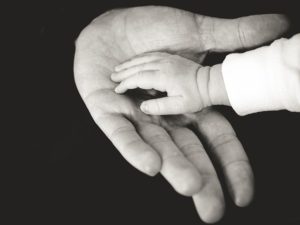
The same is true of the “will” that is now at issue.
If we call God’s will, the “total will,” let us call the human will the “individual will.
The individual will is subsumed within the total will.
In essentialism, human free will (and actions based on it) is not separate from God’s will, but is pre-included in God’s will.
In this light, the question of theodicy seems to arise: Is it part of God’s will that humans think and commit evil?
I think that this theological theory is resolved in the following article, so please refer to it.
* Reference article: Answering the Problem of Evil – The Complete Settlement of Theodicy
Even though human beings think they are exercising free will (individual will), in the sense that “individual will is encompassed by the total will,” we can say that “everything is in the palm of God’s hand.
And even if “salvation” depends on the exercise of free will, God’s absoluteness is not impaired because free will itself is subsumed in God’s total will.
God’s absoluteness and causality
Now, let us also consider the issue of the law of causality (causalism), that man’s free will (and acts based on it) determines God’s salvation.
- Cause: Human effort for good (free will + action)
- Result: God’s salvation
That is the scheme.
In this scheme, it seems that another threat to God’s absoluteness has appeared: “God is ruled by the law of causality.
Cause and effect is, in other words, “temporality. The chain of cause and effect is, so to speak, “change,” and “change” itself is in fact the true nature of time.
*In fact, there is a “human self-consciousness that perceives change”. Change is always a continuum of the “present. Therefore, time can be defined as a “persistent present consciousness.
If God (Elohim) is omnipotent, then God must also transcend time. …To be more precise, God also encompasses time within Himself.
God is an eternal being without beginning or end.
In other words, the entire Timespace Continuum is GOD. God embraces both the past and the future in Himself.

Therefore, even if the temporal flow of human free will/action → salvation (cause → effect) occurs as a “phenomenon” inside God, it is still an event “inside God,” and God’s absoluteness is not impaired here either.
Or, since the law of causality itself is also God’s creation, we can say that even if the law of causality determines whether one is saved or not, God’s absoluteness is still unimpaired.
Whether or not one goes to the Kingdom of Heaven after death is determined by faith and action on the part of human beings. Here the law of cause and effect is at work.
It may seem as if “divine love” and the “law of cause and effect” work as separate laws, but they do not.
The law of cause and effect is also part of God’s arrangement, and making human beings responsible for their own free will (plus acts) on their part is also a manifestation of God’s love in the broadest sense of the word.
*If hell were eternal, it would be too hard, but even if you go to hell, you will not be there forever. It is only a place to learn to “get what you deserve”.
*Reference article: Is it true that “sinners will burn in hell (Gehenna) in eternal fire? (Translation will be forthcoming.
In conclusion, the predestined theory and the law of causality are not contradictory.
Then, this topic can actually be connected to the path of synthesizing Christianity and Buddhism.
If you are interested, please read the following article.
*Reference article: Buddhism and Christianity – Theory to Overcome Differences and Extract Similarities


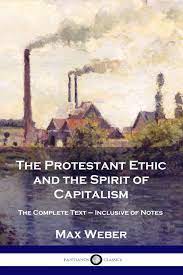

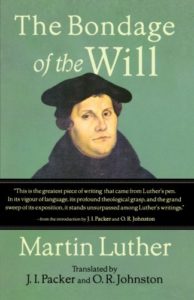
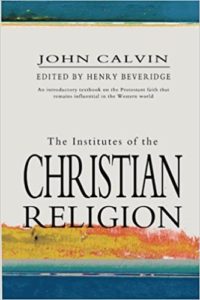


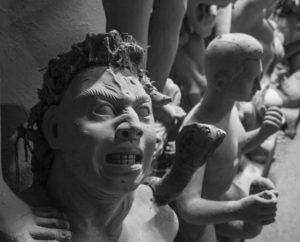
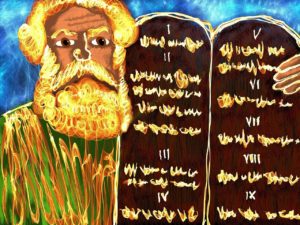

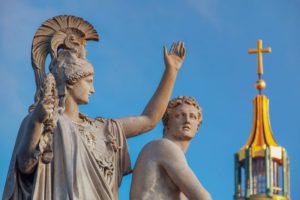


Comments